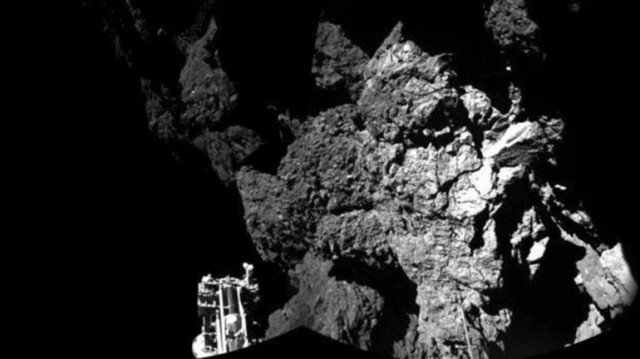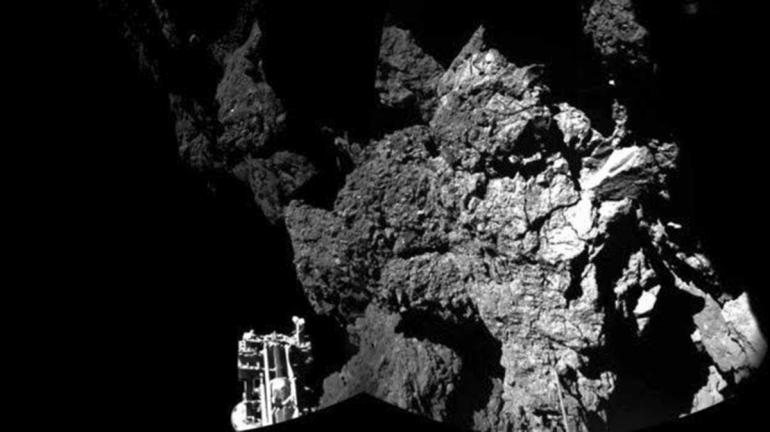Scientists have confirmed that the Philae lander has detected organic molecules on the surface of Comet 67P.
Carbon-containing “organics” are the basis of life on Earth and may give clues to chemical ingredients delivered to our planet early in its history.
The compounds were picked up by a German-built instrument designed to “sniff” the comet’s thin atmosphere.
Other analyzes suggest the comet’s surface is largely water-ice covered with a thin dust layer.
The European Space Agency (ESA) craft touched down on the Comet 67P on November 12 after a 10-year journey.
It has not been disclosed which molecules have been found, or how complex they are.
The results are likely to provide insights into the possible role of comets in contributing some of the chemical building blocks to the primordial mix from which life evolved on the early Earth.
Preliminary results from the Mupus instrument, which deployed a hammer to the comet after Philae’s landing, suggest there is a layer of dust 10-20cm thick on the surface with very hard water-ice underneath.
The ice would be frozen solid at temperatures encountered in the outer Solar System – Mupus data suggest this layer has a tensile strength similar to sandstone.
After bouncing off the surface at least twice, Philae came to a stop in some sort of high-walled trap.
Scientists had to race to perform as many key tests as they could before Philae’s battery life ran out at the weekend.
A key objective was to drill a sample of “soil” and analyze it in Cosac’s oven. But, disappointingly, the latest information suggests no soil was delivered to the instrument.
Scientists are hopeful however that as Comet 67P/Churyumov-Gerasimenko approaches the Sun in coming months, Philae’s solar panels will see sunlight again. This might allow the batteries to re-charge, and enable the lander to perform science once more.
The lander’s Alpha Particle X-ray Spectrometer (APXS), designed to provide information on the elemental composition of the surface, seems to have partially seen a signal from its own lens cover – which could have dropped off at a strange angle because Philae was not lying flat.
[youtube mMcOy2PpvTc 650]
